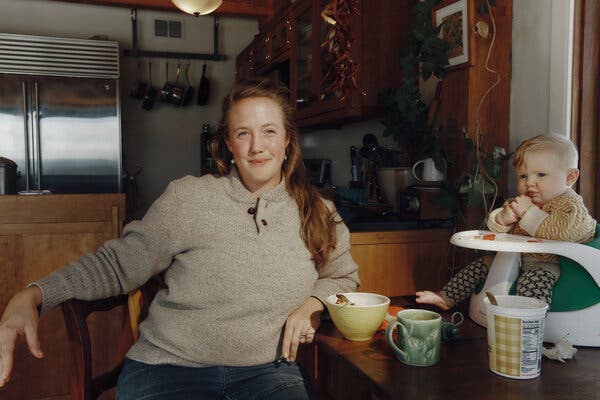Not to brag, but I have stellar “crunchy” bona fides. I was raised on wheat bread, limited television and camping vacations, and at 17 went off to Oberlin College, that notorious incubator of crunchy achievers. I am deeply familiar with old-school crunchy in all of its hues: the lumpy hand-knit sweaters, the unkempt hair.
In the 1980s, “crunchy” held a faintly pejorative meaning; one didn’t announce oneself as “crunchy” with pride. It felt more like a fashion (or anti-fashion) statement than a political stance, though if pressed I would have noted that crunchy often aligned with vegetarianism, which aligned with environmentalism — which was political. Leftist “green” parties and politics were attaining prominence in Europe, and at least one person I knew found an internship with the up-and-coming clean-water crusader Robert F. Kennedy Jr.
Kennedy has evolved a lot since the 1980s and “crunchy” has, too. Having gone through numerous life stages (addict, activist, vaccine denier, Democrat, Independent, presidential candidate, MAGA surrogate, and vaccine denier-denier), Kennedy, at 70, is now President-elect Donald J. Trump’s pick to be secretary of health and human services. As Kennedy evolved, so did “crunchy,” into a “horseshoe” alliance of far left- and far right-leaning home-schoolers and homesteaders, hippies and religious believers suspicious of conventional medicine who like to grow their own food.
Now “crunchy,” and specifically “crunchy mom,” is a hashtag on social media, complete with influencers who promote electric kettles and wooden toys. On TikTok and Instagram, crunchy moms — mostly young, white mothers of small children — post passionately about the effects of medication, pesticides and food additives on their families’ health. In their rejection of junk food, ultra-processed foods and, often, pediatricians’ advice, they see themselves as a defiant band, out of the mainstream of American child-rearing. No matter their political affiliation, they almost universally love Kennedy, whom they regard as singular in his concern for their children’s health. “The assault on our children’s cells and hormones is unrelenting,” he has said. And: “They are swimming around in a toxic soup.”
In some ways, today’s crunchy moms resemble the crunchies of yore. They make home-cooked meals from organic and locally grown produce and grass-fed meat if they can afford it and strive to raise kids in a low-tech environment with plenty of outdoor play. They idealize natural childbirth and other markers of a preindustrial past, in which one might procure eggs from one neighbor and pork from another, and “spend Easter to Labor Day barefoot, outside,” as the crunchy influencer and satirist Emily Morrow put it to me. On Really Very Crunchy, Morrow’s account, she makes skits that mock her own crunchy obsessiveness: In one, she triumphantly pressures her non-crunchy husband into drinking raw milk; in another, she brings the ingredients for bone-broth hot chocolate to the movies. Morrow has 3 million followers on YouTube, Snapchat, Instagram, Facebook and TikTok combined.
